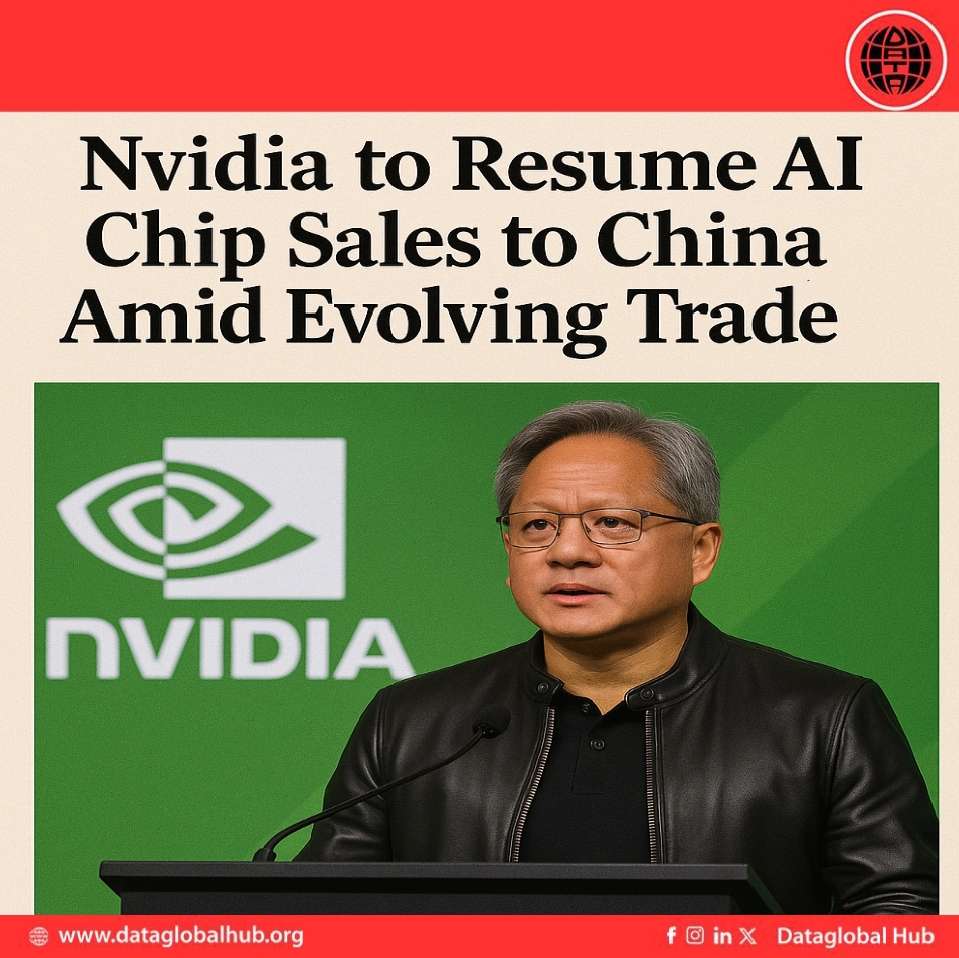
Nvidia to Resume AI Chip Sales to China Amid Evolving Trade Talks
Translate this article
Nvidia has announced plans to resume sales of its H20 AI chip to China, following recent assurances from the U.S. Department of Commerce that export licenses will move forward for review. The update comes after CEO Jensen Huang met with President Donald Trump last week, where he emphasized the potential economic impact of limiting U.S. tech exports.
The H20 chip was developed specifically to meet U.S. export compliance standards but was temporarily halted earlier this year when the White House required a special license for its sale to China. According to Nvidia, the pause led to an estimated $2.5 billion in missed revenue during the first quarter of 2025, with a further $8 billion anticipated in the second quarter.
AMD also confirmed on Tuesday that it plans to resume shipments of its MI308 chips to China, pending license approvals. In a statement, the company credited progress in U.S.-China trade negotiations and reaffirmed its commitment to supporting American AI leadership.
Commerce Secretary Howard Lutnick indicated that the licensing developments were part of a broader trade arrangement tied to China’s rare earth exports. These critical materials were a key focus in recent negotiations held in London. In return for easing restrictions on certain U.S. technologies including chip design software and jet engines China agreed to increase rare earth shipments.
China accounted for approximately 13% of Nvidia’s total sales in 2024. While the company has stopped including China in its financial forecasts due to regulatory uncertainty, the resumed licensing process signals a potential stabilization in market access.
As of July 2025, Nvidia remains the world’s most valuable publicly traded company, recently surpassing a $4 trillion valuation driven by its central role in powering AI systems used in everything from language models to robotics.
Huang is scheduled to speak at a supply chain expo in Beijing on Wednesday, where he is expected to further address the strategic importance of the Chinese market and ongoing trade relations.
The situation highlights the complex balance U.S. policymakers face seeking to limit the transfer of sensitive technologies while ensuring that American firms remain competitive in a globally connected AI ecosystem.
About the Author

Aremi Olu
Aremi Olu is an AI news correspondent from Nigeria.
Recent Articles
Subscribe to Newsletter
Enter your email address to register to our newsletter subscription!